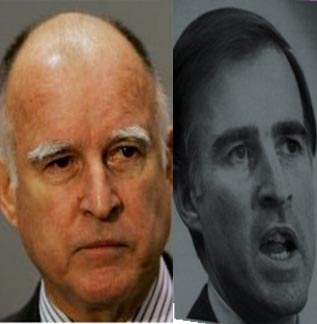Calfornia Reaping What Jerry Brown Planted in the 1970s
It's not often that a politician has to deal with a problem he created nearly twenty-five years ago. Most politicians sacrifice the short-term political benefit and leave the political headache to future generations of taxpayers and politicians. That's why it is ironic that while Jerry Brown wrestles with a spending and debt crisis in California he is forced to deal with a problem of his own making. In 1976, during Brown's first term as governor, he approved collective bargaining rights for government workers. Since that decision, the government workers unions power and influence have grown California's government spending through the roof as they bargained against the taxpayers for greater salary and benefits that many of their private sector counterparts. One thing you can say about Jerry Brown is that politics runs through his veins. Since 1976, Brown has been defeated for re-election, run for the presidency, elected mayor of a large city and won the governorship again forcing him to deal with a $16 billion deficits and a powerful opposition for reform from government union bosses -- union bosses empowered by his 1976 decision. Brown's solution to this problem shows that while he may have extraordinary staying power he has underwhelming temerity. While he talks about taking on the special interests and making drastic cuts to the state's budget, he is offering large tax increases and minor reforms to the power of the unions. Should the state defeat his tax increase initiative this November, he will be forced to take on the monster of his own making. Don't count on Jerry Brown asking that California become a Right to Work state but it would be a sign that he was serious in addressing the problem of his own making. Chriss Street at Breitbart looks at this problem in greater detail:






